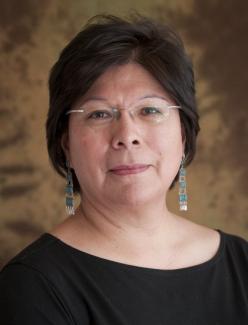
Indigenous women are our mothers, grandmothers, and great-grandmothers; our aunties, daughters, and granddaughters, who span generations from the past to the future. Our mothers are timeless as they create and nurture life sustained in an ecology of the land, water, sky, plants, animals, and the spiritual world. They provide for the well-being of their families and communities and fight to protect their territories and homelands. They are medicine people, scientists, artists, activists, journalists, peacemakers, lawyers, traditional knowledge holders, and educators raising their voices and leading the way for change, justice, and sustainability for Mother Earth and humankind.
At the same time, Indigenous women around the world face complex challenges as they struggle against poverty and economic insecurities, lack of basic services, discrimination and exclusion, misogynistic attitudes and beliefs, inequitable laws, violence, and disappearance. They are disproportionately victimized by the destructive forces of extractive industries, impacts of climate change, and structural injustice. To address these challenges, Indigenous women are demanding to be heard. They are standing strong in leading local and national movements, and participating in global processes to assert Indigenous Peoples’ rights, human rights, and the rights of women.
In this issue of the Cultural Survival Quarterly, extraordinary women are rising up and resisting. Hindou Oumarou Ibrahim speaks of bridging the lives of women in their local communities to the discussions of climate change: “Indigenous women are the most affected by climate change, firstly because they are the ones who are collecting food and water to feed their families. They are playing a big role in natural resource conservation and in protecting traditional knowledge. The women of the communities understand climate change because they are seeing it through all their work.” In the Amazon, Indigenous women are demanding the protection of their rainforests and territories, asserting their rights and voices in protest marches, government meetings, and at international fora like COP23. As Sarayaku leader Mirian Cisneros states, “Our people are in our communities, while they are here making decisions for us. They are putting prices on us without fully comprehending that within our territories we exist as communities with huge wisdom, knowledge, science, technology. My message here at COP23 . . . is that we need to fight together [and] unite forces, because the States that are here speaking in our name are at a negotiating table where supposedly they are looking for solutions—but these solutions are for them, not for Indigenous Peoples.”
In another arena, Indigenous women are targeting banks and financial institutions abroad and using divestment strategies to address Indigenous rights and human rights violations. As Michelle Cook, Diné (Navajo) human rights lawyer who led the Divest, Invest, Protect campaign, says, “I hope that the divestment work continues to carry the torch for Indigenous rights, illuminating the obscured economic architecture required to sustain harmful resource extraction and development in our ancestral lands and territories.” Meanwhile, at home in Vancouver Island, British Columbia, Gisele Maria Martin is working to sustain her Nuučaanuł language; as she explains, “Just upholding our language could have significant repercussions because it’s such a culturally and ecologically informed language.”
There are of course many more women to highlight, and I thank all of our sisters who stand courageously for life, carrying forth the spirit of our grandmothers to our granddaughters and the generations to come. As Māori elder Pauline Tangiora says to the children of the world, “Dream a dream, and you will get there, but it won’t come without hard work. If the world supports each other, it would be a better place.”
In Spirit,
Suzanne Benally, Executive Director
(Navajo and Santa Clara Tewa)
Take action at www.cs.org/ take-action.
Read more news at www.cs.org/news.
